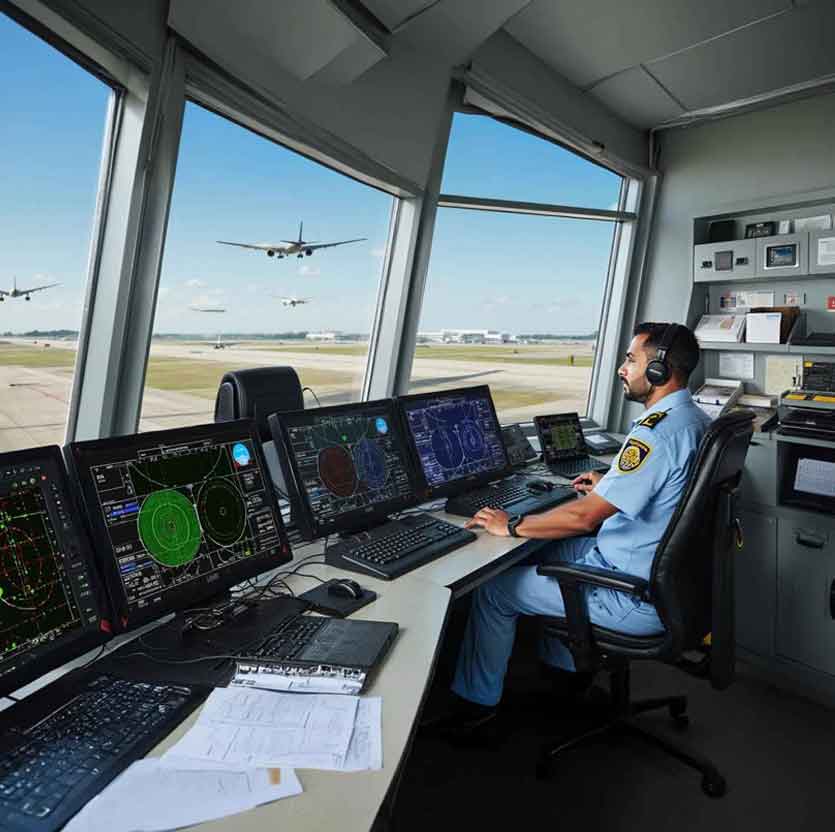
Master Aviation Communication for a Successful Pilot Career
Effective and precise communication is a critical skill for every pilot. Our Radio Telephony Restricted (RTR) Course is designed to equip aspiring pilots with the knowledge and proficiency required to communicate seamlessly with Air Traffic Control (ATC) and other aviation professionals.
What You Will Learn?
- Aviation radio communication procedures and phraseology
- Handling emergency transmissions and distress calls
- Understanding and operating radio equipment
- Real-world ATC interaction scenarios
- Preparation for the DGCA RTR exam
Taught by experienced aviation professionals, including retired ATC officers and airline captains, this course ensures you are well-prepared to meet regulatory communication requirements. Completing this program is a crucial step toward securing your RTR license, an essential qualification for pilots.
Course Content
Introduction to Radio Telephony:
- Basics of radio communication
- Importance and role of radio telephony in aviation
Communication Procedures:
- Standard communication procedures
- Use of standard phraseology and terminology
- Understanding and using the phonetic alphabet
Regulations and Compliance:
- Overview of international and national regulations governing radio telephony
- Compliance with the International Civil Aviation Organization (ICAO) standards
- National regulatory requirements
Radio Equipment:
- Types of radio equipment used in aviation
- Operation and handling of radio devices
- Maintenance and troubleshooting of radio equipment
Practical Communication Skills:
- Conducting routine and emergency radio transmissions
- Communicating with air traffic control (ATC)
- Ground-to-air and air-to-ground communication procedures
Phraseology and Communication Techniques:
- Standard phraseology for various phases of flight (taxi, takeoff, cruising, landing)
- Techniques for clear and effective communication
- Handling misunderstandings and ensuring message clarity
Emergency Communication Procedures:
- Managing communication during in-flight emergencies
- Distress and urgency communication procedures
- Coordination with ATC and emergency services
Examinations and Assessments:
- Mock tests and practical assessments
- Preparation for the RTR examination
- Tips for successfully passing the oral and practical exams

Prerequisites:
- Basic understanding of aviation operations
- Familiarity with aircraft systems and flight procedures (beneficial but not mandatory)
Career Opportunities:
Upon successful completion of the RTR course, candidates will be well-prepared for roles requiring proficient radio communication skills. This certification is crucial for pilots, air traffic controllers, and other aviation professionals involved in operational communication.
The instructors helped me every step of the way. I now have my first pilot job, thanks to the training and job support!
Capt. Arya K.
This program gave me the skills and confidence I needed to become a pilot. The hands-on training was the best part!
Capt. Adil M.
